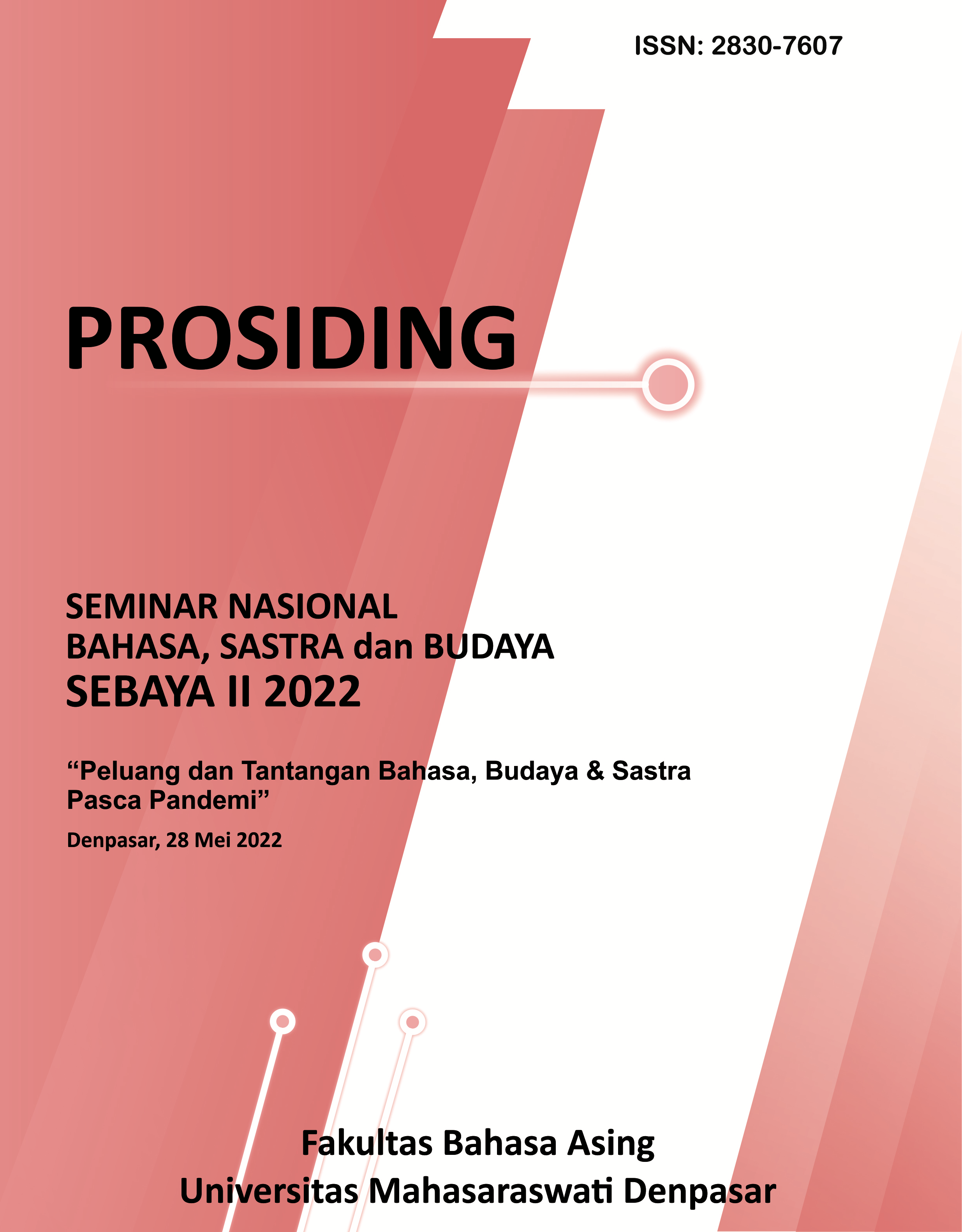YONEZU KENSHI DAN LEMON: KAJIAN SEMIOTIKA RIFATERRE
Keywords:
Keywords: lyric, Lemon, semioticAbstract
The analysis of song lyrics provides insight into the use of language and its meaning. Songs, like poetry, become a means for the author to express himself while conveying messages to his listeners. Not infrequently, there are words in the song's lyrics that have an explicit meaning, which listeners must first discover or study. Furthermore, because the song is in a foreign language, listeners or song lovers are frequently perplexed in capturing the message and meaning of the song if they do not understand the language used in the song. One of them is a Japanese song. Kenshi Yonezu is a Japanese singer whose work has been widely recognized around the world. Kenshi Yonezu has won numerous awards for the songs he has written, one of which is Lemon, which was released in 2018. Lemon, for ordinary people, means that the song's content could be about lemons, or it could be about nothing at all, or the word "lemon" is just a figurative meaning. As a result, a more in-depth analysis is required to determine the true meaning of the Lemon song lyrics. Qualitative methods are used to explain and analyze objects through data collection, in this case the text of the lyrics to Kenshi Yonezu's song Lemon. Qualitative methods are used to explain and analyze objects through data collection, in this case the text of the lyrics to Yonezu Kenshi's song Lemon. Rifaterre's semiotic theory about the continuity of meaning in poetry is used, and it can be investigated by shifting meaning, destroying meaning, and replacing meaning. This song has a very deep meaning in it, namely the sadness of someone who is no longer with the person he loves, and he will never be able to forget it. This is demonstrated by the phrase "Ima demo anata wa watashi no hikari" (for me until now, you are my light), which appears three times in the song, emphasizing the significance of the lyrics.

